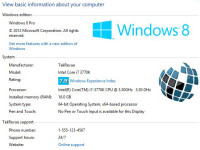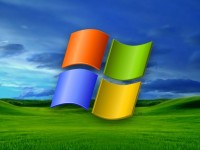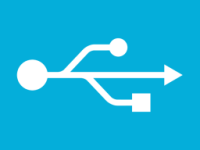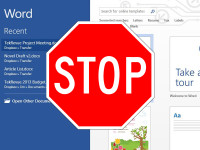
Anyone who has ever used a PC from a company like Dell or HP has likely noticed the custom manufacturer and support info in the Control Panel. But what if you’ve built your own computer or installed a fresh copy of Windows? Here’s how to add your own custom system information and logo.

Many PC users have upgraded to 64-bit versions of Windows and third party software, and they enjoy the increased access to system memory and speed that the architecture provides. But it’s not a good idea to run every app in 64-bit mode. One example is Office, and we explain why some users may prefer the 32-bit version.

With all the talk of Windows 8.1 and OS X Mavericks, it’s important to remember that millions of people are still running Windows XP. For those dedicated users, here’s how to keep XP looking fresh and modern with the Royale theme.

Errors on your local network or with your Internet provider can sometimes make it appear that a particular website is down, even if it’s not. As a quick and easy first troubleshooting step, use this handy site to see if a website is truly down, or if it’s just you.

Many PCs are now shipping without built-in optical drives. This allows for thinner computers and better battery life, but makes it a pain if you ever have to reinstall Windows. Instead of buying a bulky external optical drive, here’s how to create your own convenient Windows USB Installer.

Office 2013 applications feature start screens upon launch that let users easily choose a document template and access recently saved files. But some users prefer to start each app directly with a new blank document. Here are two ways to bypass or disable the Office 2013 start screens.
 How to Enable Full Names in iOS 7 Messages
How to Enable Full Names in iOS 7 Messages
 Enhance the Legibility of iOS 7 by Enabling Bold Fonts
Enhance the Legibility of iOS 7 by Enabling Bold Fonts
 How to Use Private Browsing in iOS 7
How to Use Private Browsing in iOS 7
 How to Change a Network Location in Windows 8
How to Change a Network Location in Windows 8
 How to Activate OS X’s Quick Look Using Your Mac’s Trackpad
How to Activate OS X’s Quick Look Using Your Mac’s Trackpad
 Become a Time Machine Power User With These Terminal Commands
Become a Time Machine Power User With These Terminal Commands
 How to Customize a PC’s Manufacturer & Support Info in Windows
How to Customize a PC’s Manufacturer & Support Info in Windows











